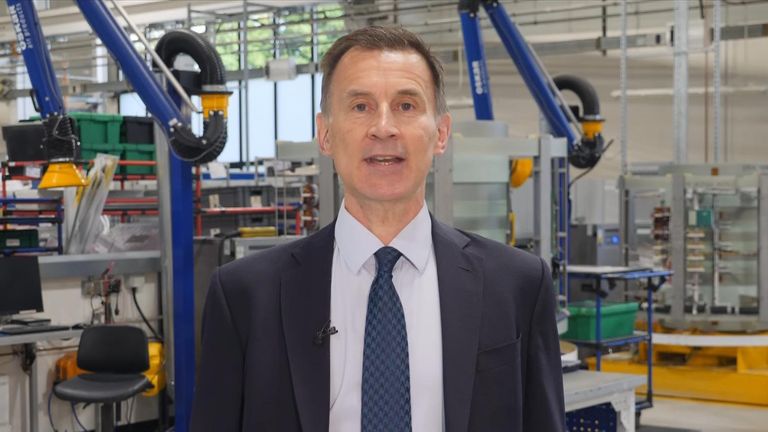
Britain is not just out of recession. It is out of recession with a bang.
The economic growth we saw reported this morning by the Office for National Statistics is not just faster than most economists expected, it is the fastest growth we’ve seen since the tail-end of the pandemic when the UK was bouncing back from lockdown.
But, more than that, there are three other facts that the prime minister and chancellor will be gleeful about (and you can expect them to be talking about this number for a long time).
First, it’s not just that the economy is now growing again after two-quarters of contraction (that was the recession).
An economic growth rate of 0.6% is near enough to what economists used to call “trend growth”, back before the crisis – in other words, it’s the kind of number which signifies the economy growing at more or less “normal” rates.
And normality is precisely the thing the government wants us to believe we’ve returned to.
Second, that 0.6% means the UK is, alongside Canada, the fastest-growing economy in the G7 (we’ve yet to hear from Japan, but economists expect its economy to contract in the first quarter).
Third, it’s not just gross domestic product (GDP) that’s up. So too is gross domestic product per head – the number you get when you divide our national income by every person in the country.
After seven years without any growth, GDP per head rose by 0.4% in the first quarter. And since GDP per head is a better yardstick for the “feelgood factor”, perhaps this means people will finally start to feel better off.
But this is where the problems come in. Because while this latest set of GDP figures is undoubtedly positive, the numbers that came before are undoubtedly grim.
GDP per head is still considerably lower, in real terms, than it was in 2022, before the mini-budget, or for that matter lower than in early 2019.
Read more from business:
Interest rate cut is not far off
New Post Office body plan rejected
Tata Steel strike moves closer
This raises another question: when people think about the state of the economy ahead of the election (and obviously these new figures are likely to increase the speculation about the date of the election), do they put more weight on the years of economic disappointment or the bounce back after them?
Do they focus on the fact that we’re now growing at a decent whack or on the fact that their income per head is, in real terms, no higher today than it was five years ago?
These are the questions we will all be mulling in the coming months – as the next election approaches.
One thing is for sure: this won’t be the last time you hear about these GDP numbers.







